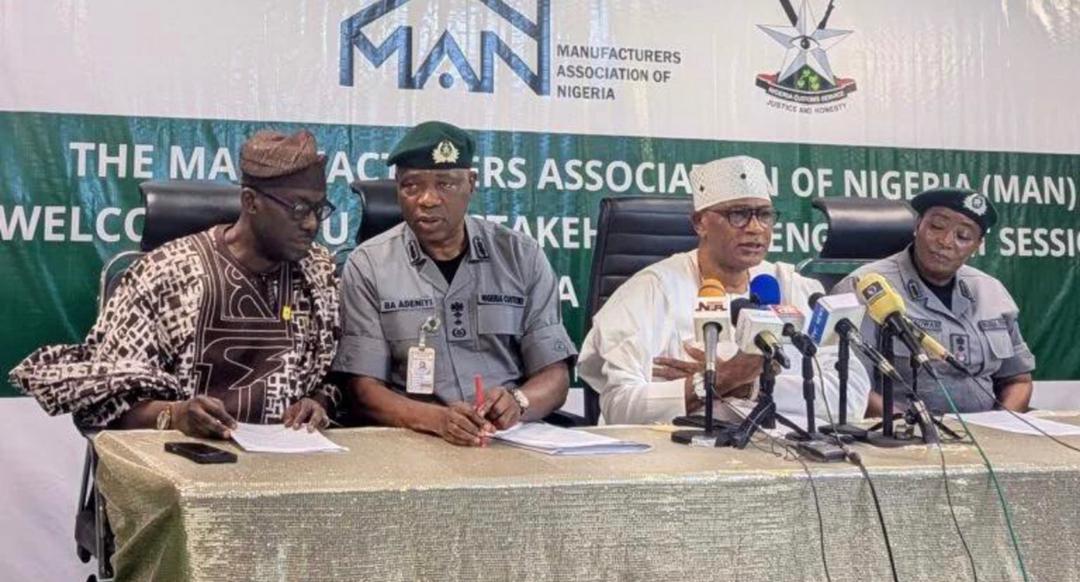The Nigeria Customs Service (NCS) has announced that manufacturers in the country will be exempted from paying the 4% Free on Board (FOB) charge.
The exemption was confirmed on Friday during a meeting between the leadership of the NCS and the Manufacturers Association of Nigeria (MAN), attended by the President of MAN, Francis Meshioye, and the Comptroller General of Customs, Adewale Adeniyi.
Both parties emphasised the importance of continued dialogue and cooperation to unlock Nigeria’s industrial potential.
Meshioye congratulated Adeniyi on his election as Chairperson of the World Customs Organization (WCO) Council and underscored the need for sustained engagement to resolve pressing issues such as the now-abolished 4% FOB charge and technical delays on the B’Odogwu platform.
He pledged that MAN would continue to work with Customs and government at all levels to streamline trade processes, reduce port costs, and enhance industrial competitiveness.
Under the new arrangement, manufacturers will be exempted from paying the 4% FOB charge on the importation of raw materials, machinery, and spare parts under Chapters 98 and 99 of the Customs tariff.
The agreement also provides for the onboarding of manufacturers not currently listed under the tariff chapters, tripartite consultations between NCS, MAN, and the Ministry of Finance to accelerate onboarding and simplify processes, as well as the introduction of a credit system for manufacturers who have already paid the charge, enabling them to apply it in future after onboarding.
The scope of exemptions has also been extended to humanitarian goods, healthcare imports, government projects, and commercial airline spare parts.
Adeniyi briefed MAN on ongoing trade facilitation measures, which include the Authorised Economic Operator (AEO) programme, Advance Ruling, Time Release Studies, and the integration of the B’Odogwu system into the National Single Window project, expected to go live in the first quarter of 2026. Meshioye welcomed the AEO scheme but called for clearer admission guidelines to encourage broader participation across the manufacturing sector.
Both organisations agreed to institutionalise regular consultation mechanisms through structured policy dialogue, proactive feedback systems, and periodic reviews to monitor progress and identify new opportunities for collaboration.
“This partnership reflects our shared commitment to Nigeria’s economic transformation through industrial growth, job creation, and export promotion,” said Comptroller General of Customs, Bashir Adewale Adeniyi.
“Constructive dialogue like this is essential to building a predictable customs environment that supports manufacturing excellence,” Meshioye added.
The engagement reaffirmed the role of Customs in facilitating legitimate trade, protecting borders, and generating revenue, while also highlighting the manufacturing sector’s mandate to drive industrial production, create jobs, and diversify the economy.
